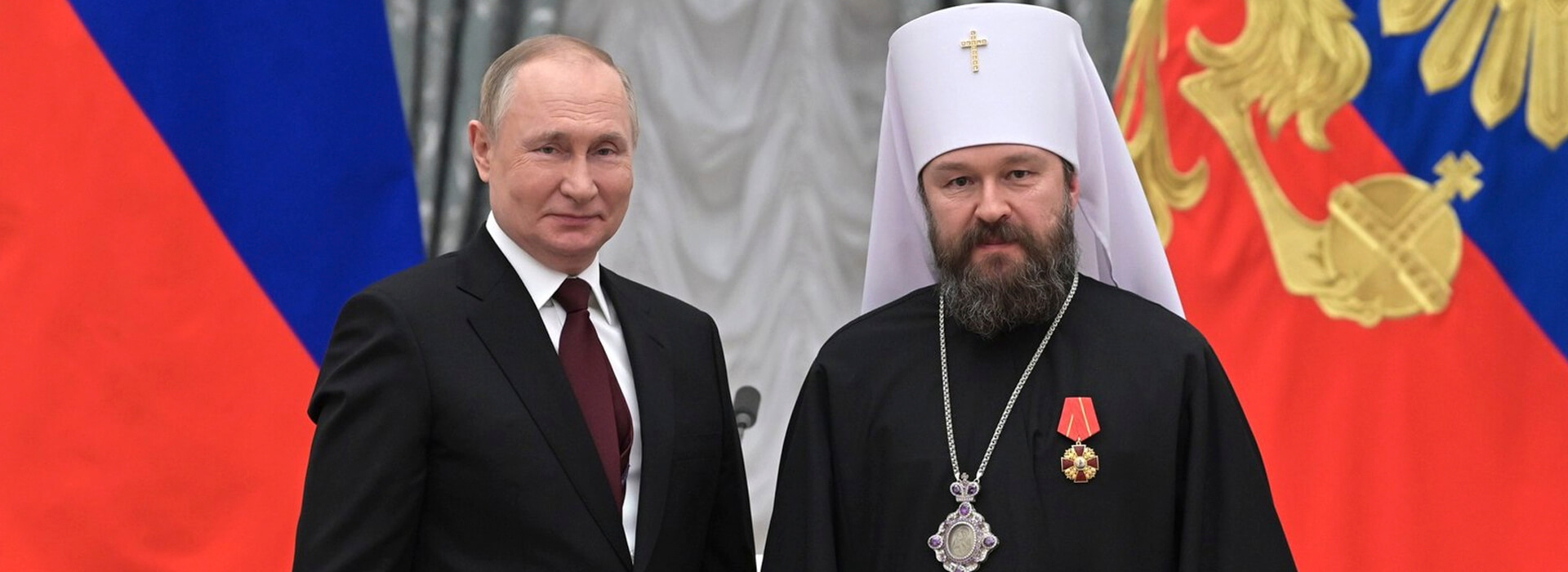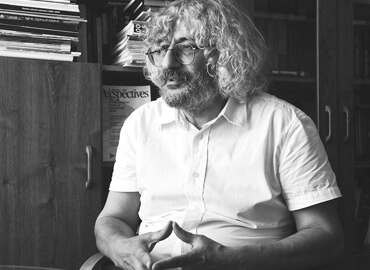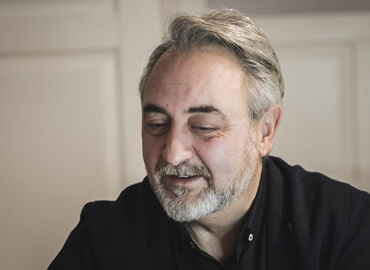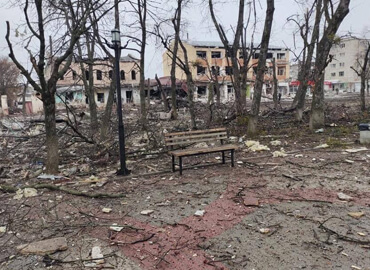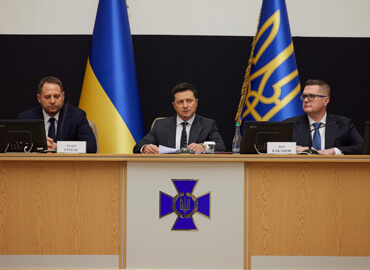Hungary has blocked the inclusion of Patriarch Kirill of Moscow in the sixth package of sanctions against Russian officials and organizations in connection with ongoing Russian aggression against Ukraine. Prime Minister Viktor Orban said that the inclusion of the head of the Russian Orthodox Church (ROC) in the sanctions list is an issue of religious freedom.
Personal sanctions against the Patriarch of Moscow Kirill (Gundyaev) in May were proposed by the European Commission, and on April 7 the European Parliament issued a resolution on the increasing repression in Russia, including the case of Alexei Navalny (2022/2622), where paragraph 6 condemns «the role of Patriarch Kirill of Moscow, head of the Russian Orthodox Church, for providing theological cover for Russia’s war of aggression against Ukraine» and praised «the courage of the 300 priests of the Russian Orthodox Church who have signed a letter condemning the aggression, grieving over the ordeal of the Ukrainian people and asking to ‘stop the war.»
At a special summit on May 30, EU leaders approved personal restrictive measures against Kirill, but at a meeting of ambassadors of EU member countries Hungary blocked this decision. German MEP Michael Gahler commented on this move by Orban: «This guy, dressed in the robe of a patriarch, is a close accomplice of Vladimir Putin, fulfilling his wishes and blessing his atrocities in Ukraine. Kirill deserves sanctions, and I condemn Viktor Orban for his position and blackmail.»
During the last stage of the discussion of sanctions the second person in the hierarchy of the Russian Orthodox Church and chairman of the Department for External Church Relations (DECR), Metropolitan Hilarion (Alfeev), was on a work visit to Hungary. He met with Archbishop of Esztergom and Budapest Cardinal Peter Erdő and Deputy Prime Minister of the Government of Hungary Zsolt Semjén, to whom «on behalf of the Russian Orthodox Church he expressed gratitude to Hungary for its firm position regarding the unacceptability of including His Holiness Patriarch Kirill of Moscow and All Russia in the EU sanctions list.»
Immediately after the return of Metropolitan Hilarion from Hungary, the Synod of the Russian Orthodox Church met in Moscow, where the report on this trip was the first item discussed. It was decided «to express gratitude to Prime Minister Viktor Orban of Hungary for his firm position regarding the unacceptability of including His Holiness Patriarch Kirill of Moscow and All Russia in EU sanctions list.»
It was also decided that Metropolitan Hilarion would be seconded to Hungary. He was dismissed from the post of chairman of the Department for External Church Relations, removed from the permanent members of the Synod of the Russian Orthodox Church, and appointed to the post of administrator of the Budapest-Hungarian diocese and Metropolitan of Budapest and Hungary, managing only a dozen parishes and a little more than a dozen priests.
Such a move looks like a demotion. Before his position as head of the DECR, to which he was promoted by Kirill, who was elected in 2009 to the Patriarchal throne, Metropolitan Hilarion had already headed both the Budapest and Vienna-Austrian dioceses for several years. He was then the representative of the Russian Orthodox Church at European international organizations in Brussels.
Now Metropolitan Hilarion will apparently have a similar mission in lobbying the interests of the Russian Orthodox Church in the West. Several factors will assist him in this.
First, such a move looks as if Hilarion was being punished for his cautious stance on Russian aggression in Ukraine. Before the start of the war, he spoke out quite critically against military operations on the Church and Peace program on January 29 and February 22, 2022. After the start of aggression, in contrast to Patriarch Kirill and many other high-ranking clergy of the Russian Orthodox Church, he did not express any enthusiasm or support for the war. Metropolitan Hilarion in Budapest then is seen as a kind of «good Russian» who can distance himself from the shameful position of the top leadership of the Russian Orthodox Church on the war, and trust in him as a religious and political figure in the West has grown.
Second, the diplomatic abilities of Metropolitan Hilarion are well known. When defending the interests of the Russian Orthodox Church in the international arena he essentially deflects to other problems. This happened, for example, during the All-Orthodox meeting that was a prelude to the General Assembly of the World Council of Churches in Cyprus. Metropolitan Hilarion’s report, in which he condemned wars broadly, was devoted to the humanitarian activities of the Russian Orthodox Church in helping Ukrainian refugees and that discrimination against Russians was unacceptable, inspiring warmth among the audience. Orthodox people from other churches, initially critical of the position of the Russian Orthodox Church on Russian aggression and ready to ask Metropolitan Hilarion uncomfortable questions, was totally disarmed. And even the final document was drafted without any criticism whatsoever, demonstrating a pure diplomatic victory.
For the upcoming Assembly of the World Council of Churches, where one of the tasks of the ROC will be to defuse negative reactions towards itself and towards Russia because of the war against Ukraine, Hilarion’s diplomatic skills and ecumenical connections will be much needed. This will be much more convenient for him from the center of Europe to attend conferences and meetings rather than from Russia, which is now isolated at the international level.
Third, Hungary for Metropolitan Hilarion as a platform for action in the West is ideal. He will be under the patronage of the influential Prime Minister Viktor Orban, who, in turn, will gain a religious ally in Alfeev on policy that is grounded in the protection of «traditional values.» It is Metropolitan Hilarion who is the link between the Moscow Patriarchate and several religious and political international alliances in defense of the «traditional values» of which he is an ardent supporter. Moreover, a small diocese, which requires minimal management efforts, will allow Metropolitan Hilarion to free himself up for engaging more in diplomatic and personal work instead of direct pastoral work, while developing his scientific and musical career. With a favorable set of circumstances, it has the potential to become an «gathering point» for Orthodox circles in the West that are dissatisfied with the cannibalistic position of Patriarch Kirill and the Russian Orthodox Church relative to the war in Ukraine. Hilarion will be in this sense a bit more of a «human face.»
Natalya Vasilevich is a theologian, political scientist, and moderator for the Christian Vision group of the Coordinating Council. She is an expert on religious groups in Belarus.
This article was prepared by iSANS specially for Reform.by.
Материал доступен на русском языке: РПЦ, дипломатия и «хорошие русские»



